10 Free Cash Flow Gushers for Dividends, Buybacks and More
Excess free cash flow can often be used to generate long-term value for companies. Here are 10 FCF stocks that could be poised for growth.

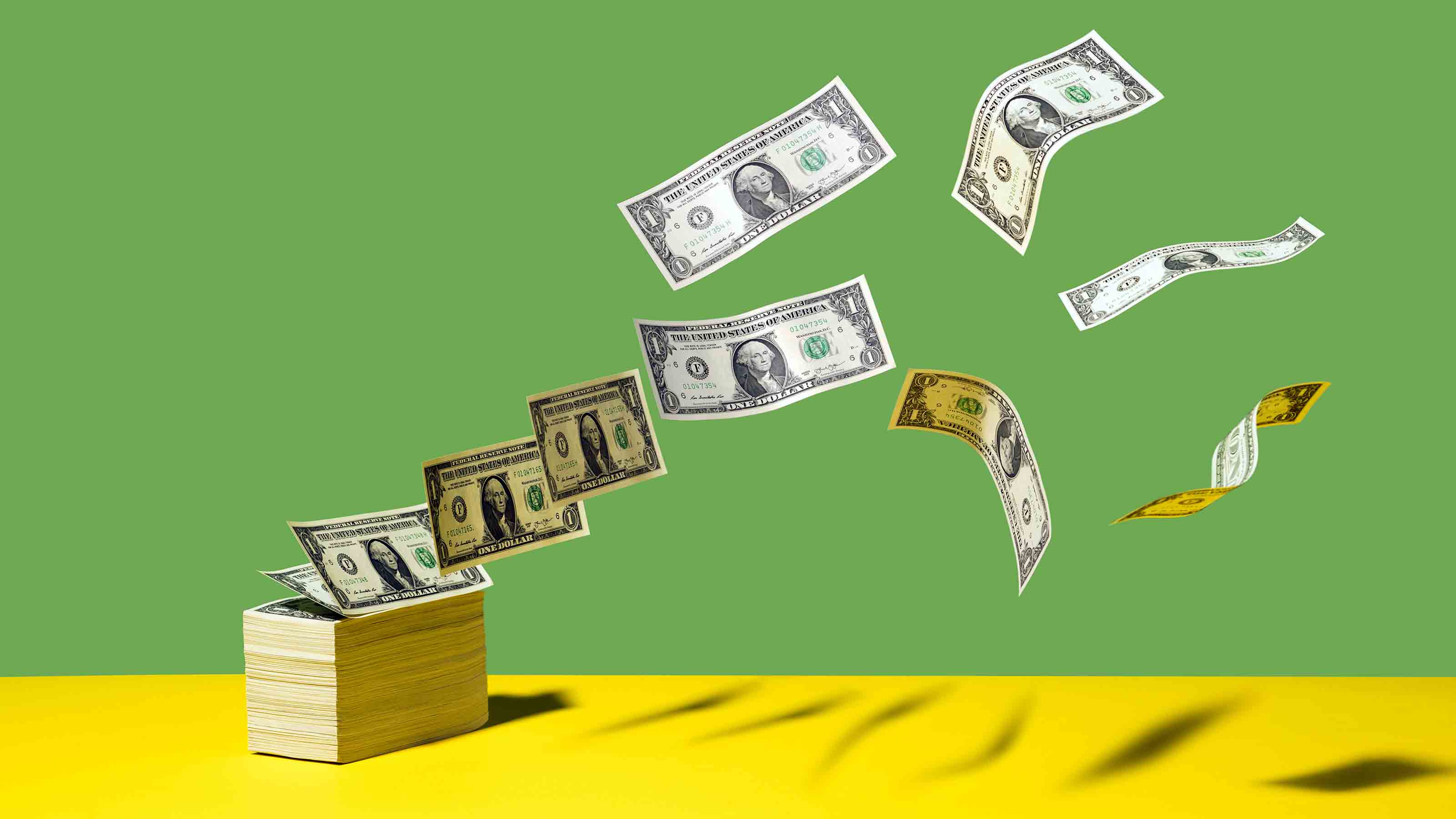
Profit and prosper with the best of Kiplinger's advice on investing, taxes, retirement, personal finance and much more. Delivered daily. Enter your email in the box and click Sign Me Up.
You are now subscribed
Your newsletter sign-up was successful
Want to add more newsletters?

Delivered daily
Kiplinger Today
Profit and prosper with the best of Kiplinger's advice on investing, taxes, retirement, personal finance and much more delivered daily. Smart money moves start here.

Sent five days a week
Kiplinger A Step Ahead
Get practical help to make better financial decisions in your everyday life, from spending to savings on top deals.

Delivered daily
Kiplinger Closing Bell
Get today's biggest financial and investing headlines delivered to your inbox every day the U.S. stock market is open.

Sent twice a week
Kiplinger Adviser Intel
Financial pros across the country share best practices and fresh tactics to preserve and grow your wealth.

Delivered weekly
Kiplinger Tax Tips
Trim your federal and state tax bills with practical tax-planning and tax-cutting strategies.

Sent twice a week
Kiplinger Retirement Tips
Your twice-a-week guide to planning and enjoying a financially secure and richly rewarding retirement

Sent bimonthly.
Kiplinger Adviser Angle
Insights for advisers, wealth managers and other financial professionals.

Sent twice a week
Kiplinger Investing Weekly
Your twice-a-week roundup of promising stocks, funds, companies and industries you should consider, ones you should avoid, and why.

Sent weekly for six weeks
Kiplinger Invest for Retirement
Your step-by-step six-part series on how to invest for retirement, from devising a successful strategy to exactly which investments to choose.
Free cash flow (FCF) is one of the most important financial metrics you can study, especially if you're a buy-and-hold investor.
FCF is the cash remaining after a company has paid its expenses, interest on debt, taxes and long-term investments to grow its business. And if a company generates more cash than it needs to run its business, it can do a number of useful things with it, such as pay dividends, buy back its stock, acquire other companies, expand its business and knock out its debts.
There's no right answer as to the best way to use free cash flow. But the ability to consistently grow FCF over the long haul – however it's put to use – is a proven recipe for higher share prices.
We examined the top 10 holdings from three different exchange-traded funds (ETFs) focused on free cash flow: the Pacer US Cash Cows 100 ETF (COWZ), the AAM S&P 500 High Dividend Value ETF (SPDV), and the TrimTabs US Free Cash Flow Quality ETF (TTAC).
With that in mind, we selected a few stocks from each ETF, choosing companies that generate high amounts of FCF and put it to good use via dividends, buybacks and more. Read on to see our list of 10 free cash flow stocks that could be poised for long-term growth.
Data is as of May 21. Free cash flow yield is FCF divided by enterprise value (which is market cap plus debt minus cash).
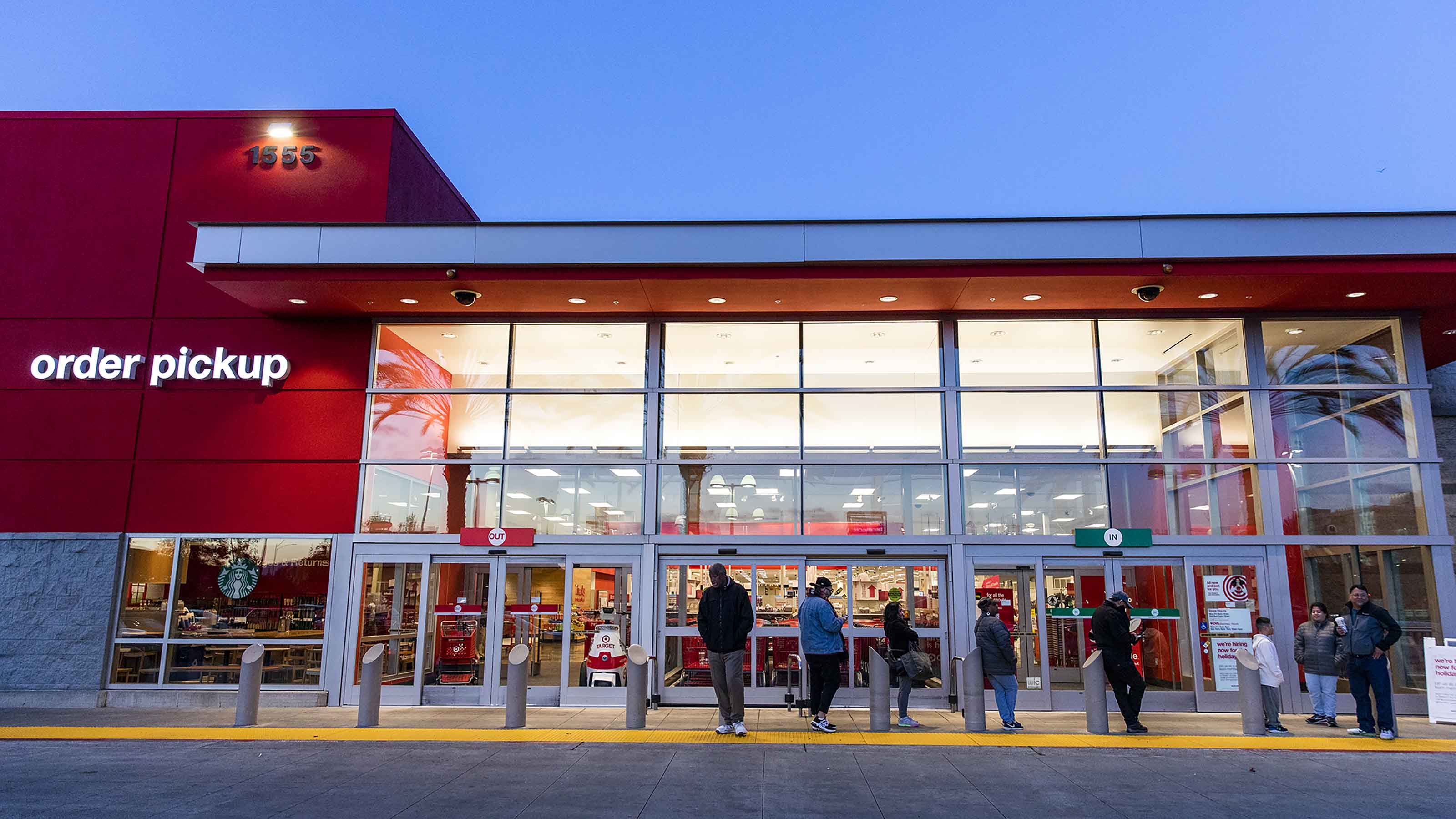
Target
- Market value: $111.7 billion
- Free cash flow – trailing twelve months (TTM): $8.0 billion
- Free cash flow yield: 6.7%
Target (TGT, $225.09) CEO Brian Cornell received $77.5 million in annual compensation for his work in 2020. Few chiefs are worth such a massive pay package, but many long-term TGT shareholders would likely agree Cornell is one of them.
As the Star Tribune reported in late April, Cornell did a tremendous job leading the retailer through the pandemic. Not only did Target survive, but it also thrived.
"Target did not lay off, furlough or reduce compensation of its store employees through the year," says Patrick Kennedy, Star Tribune business reporter. "Instead, it handed out five rounds of bonuses to rank-and-file employees as they adjusted to changing conditions and adopted new ways to work."
In 2020, Target doled out approximately $1 billion in bonuses, benefits and health and safety equipment required to keep its staff safe. It helps to make these kinds of payouts when you're generating record amounts of free cash flow.
As the company reported in March, its $15 billion in 2020 sales growth was greater than its growth for the previous 11 years combined. Further, in 2020, Target grew its digital sales by almost $10 billion thanks to a 235% increase in same-day services. Interestingly, it reported that it gained $9 billion in market share in 2020.
The beauty of strong free cash flow generation is that it provides a company with capital allocation options, including dividends and share repurchases. In 2020, Target paid out $1.34 billion in dividends and bought back $745 million of its stock.
While down from the $1.57 billion in shares it repurchased in 2019, it has made buybacks in 2021 and had approximately $4.5 billion left on its share repurchase program at the end of Q4 2020.
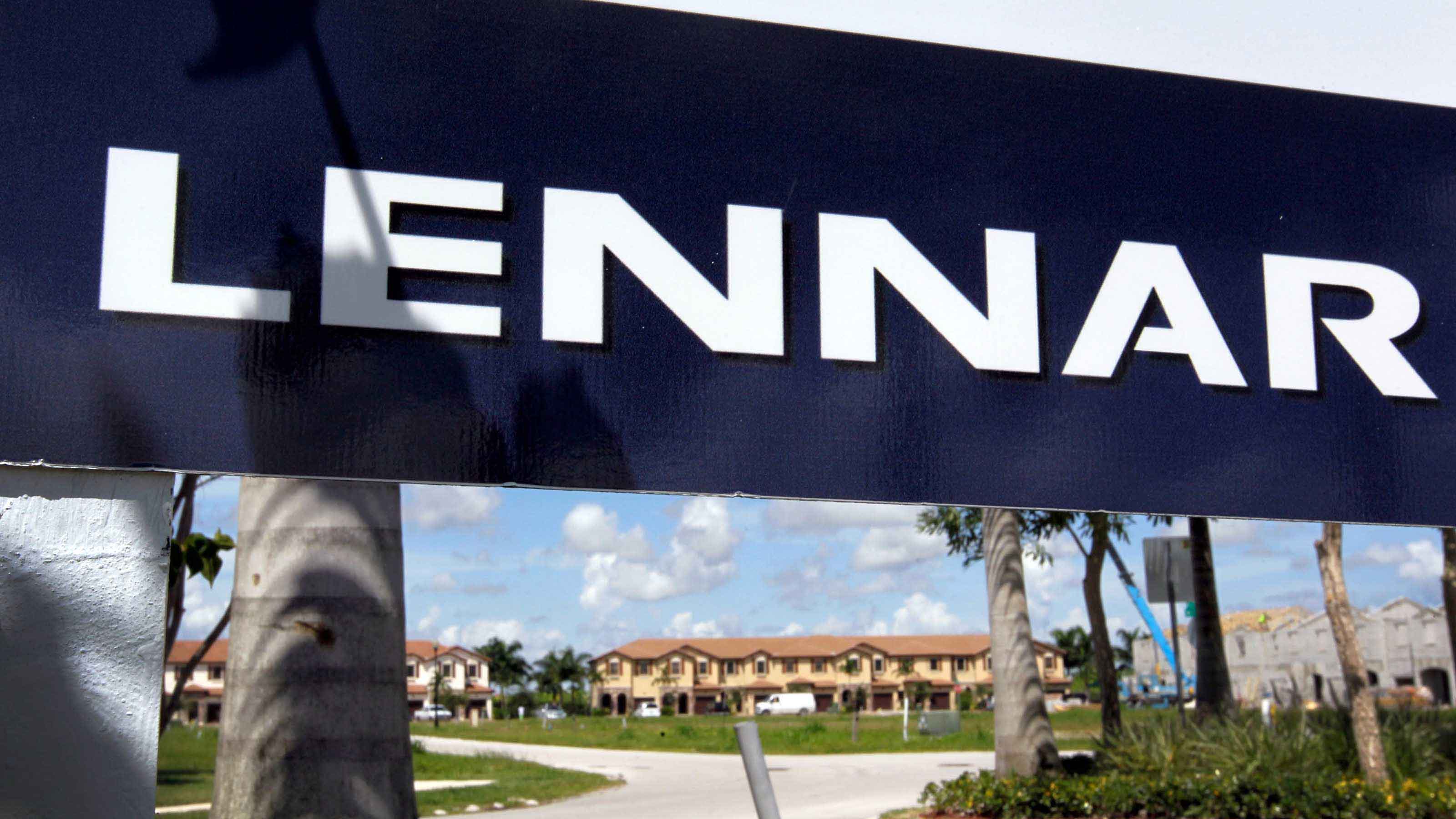
Lennar
- Market value: $28.9 billion
- Free cash flow (TTM): $4.2 billion
- Free cash flow yield: 12.4%
Lennar (LEN, $94.59) is one of America's largest homebuilders. Established in 1954, it continues to change and evolve with the industry. Despite being almost 70 years old, it still pushes the envelope to generate additional value for shareholders.
In March, the company announced the formation of the Upward America Venture, a partnership between Lennar, Centerbridge Partners, Allianz Real Estate and other large institutional investors. The partnership will fund the single-family rental platform with $1.25 billion in equity that should allow it to buy $4 billion in single-family rental properties from Lennar and other homebuilders.
"The Upward America Venture continues Lennar's vision of becoming an ESG (environmental, social and governance) driven homebuilding company by making our high-quality homes not only available for sale but also for rent, with a portion of the homes available with a rent to own option," says Lennar Co-CEO Rick Beckwitt.
As Beckwitt points out, the partnership will have access to more than 300,000 homesites that Lennar either owns or controls, making the buildout of the platform that much quicker than if it had to start from scratch.
This announcement followed the company's red-hot start to fiscal 2021.
In Q1 2021, LEN had revenues of $5.3 billion, 18% higher year-over-year. On the bottom line, it earned $3.20 a share, 152% higher than in the same period a year earlier. It finished the first quarter with a backlog of 22,077 homes worth approximately $9.5 billion, up 32% on an annual basis.
Also, in March, Lennar announced that it planned to spin off some of its non-core assets to focus exclusively on homebuilding. Estimates suggest this business would have an enterprise value between $3 billion and $5 billion. That's in addition to what it's doing with its Upward America Venture.
This slate of initiatives, combined with free cash flow north of $4 billion, has translated into growth for LEN stock, which is up more than 24% for the year to date.
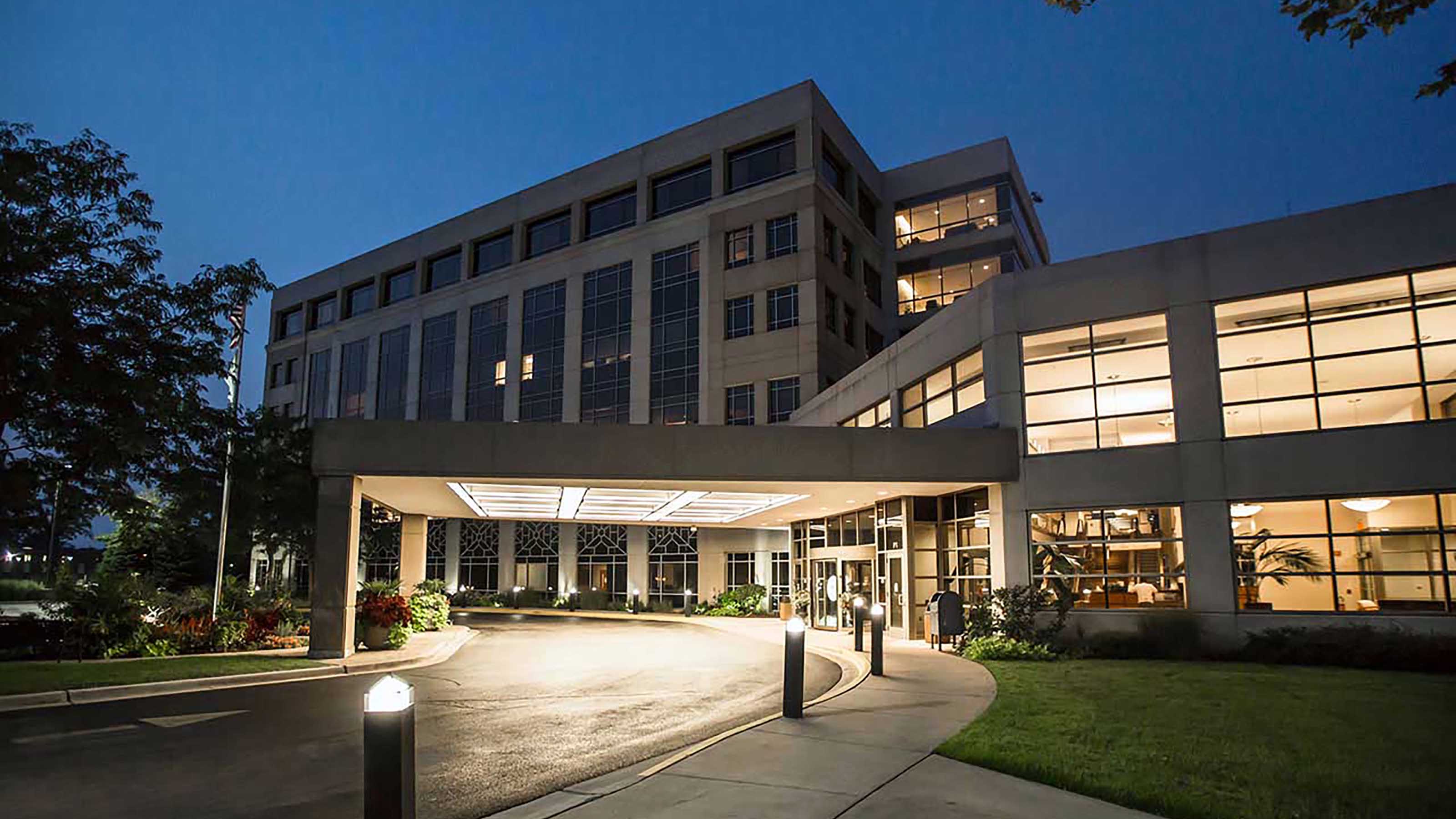
HCA Healthcare
- Market value: $68.2 billion
- Free cash flow (TTM): $7.2 billion
- Free cash flow yield: 7.2%
HCA Healthcare (HCA, $206.38) is one of the country's largest providers of healthcare. Whether at one of its 185 hospitals or approximately 2,000 sites of care, the company is committed to doing what's suitable for all its stakeholders.
In February, Ethisphere, an organization dedicated to advancing ethical business practices, named HCA to its 2021 World's Most Ethical Companies list. It was the 11th time the Nashville-based company has been recognized by Ethisphere.
As ESG issues become more important to investors, HCA should be attractive to those interested in companies with higher standards.
HCA grew its cash from operations by 44% in the first quarter of 2021 to $2.0 billion from $1.4 billion a year earlier. That translated to free cash flow of $1.3 billion, more than double the $522 million in free cash in Q1 2020.
As part of its capital allocation program, HCA repurchased $1.5 billion of its stock during the first quarter, significantly higher than $441 million a year earlier. Depending on market conditions, it plans to repurchase $7.3 billion of its stock over the final three quarters of 2021.
On the acquisition front, HCA announced in February that it would buy 80% of Brookdale Senior Living's (BKD) home health and hospitals business for $400 million. The acquisition gives HCA the ability to offer more services across its network with an emphasis on expanding its healthcare services in the home where it believes future growth lies.
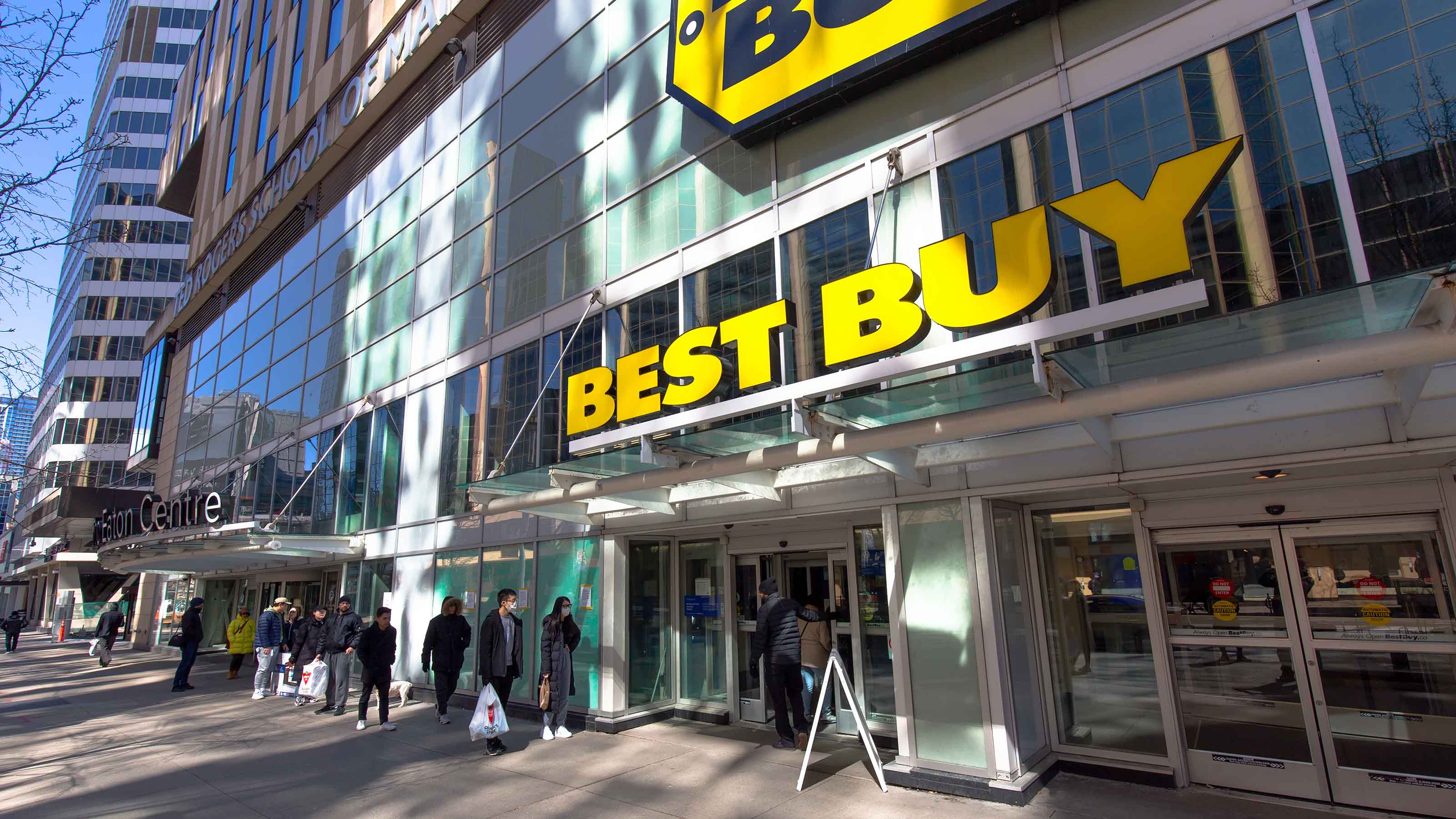
Best Buy
- Market value: $28.8 billion
- Free cash flow (TTM): $4.2 billion
- Free cash flow yield: 15.4%
Best Buy (BBY, $114.93) has gotten off to a strong start in 2021, up roughly 15% for the year to date – several percentage points more than the S&P 500 Index.
Stephanie Link, Chief Investment Strategist for Hightower Advisors, told CNBC in April that she recently took a position in BBY because she believes the retailer is set to benefit both as a stay-at-home stock and a reopening trade.
With lean inventories and a lowered cost structure, the strategist argues Best Buy will benefit from increased traffic at its stores into the summer and fall. Furthermore, Link feels BBY is reasonably priced at the moment.
In April, Best Buy took a page out of the Amazon Prime playbook and launched a pilot project called Best Buy Beta that gives members exclusive pricing, unlimited Geek Squad technical support, two years protection on purchases and free delivery. The subscription service is currently priced at $199.99 per year.
"During the past 12 months, there has been a material evolution of customer shopping behavior with millions of new customers engaging with consumer electronics – many via Best Buy," says Jefferies analyst Jonathan Matuszewski, who has a Buy rating on BBY stock.
"Simply put, we view this pilot as Best Buy's tool to turn the billions of interactions it's had with new (and reactivated) customers over the past year into lifelong relationships by showing them the full ecosystem the retailer offers through delivery, installation, repair and technical expertise."
Investors can expect the move to contribute to the future growth of BBY's free cash flow.
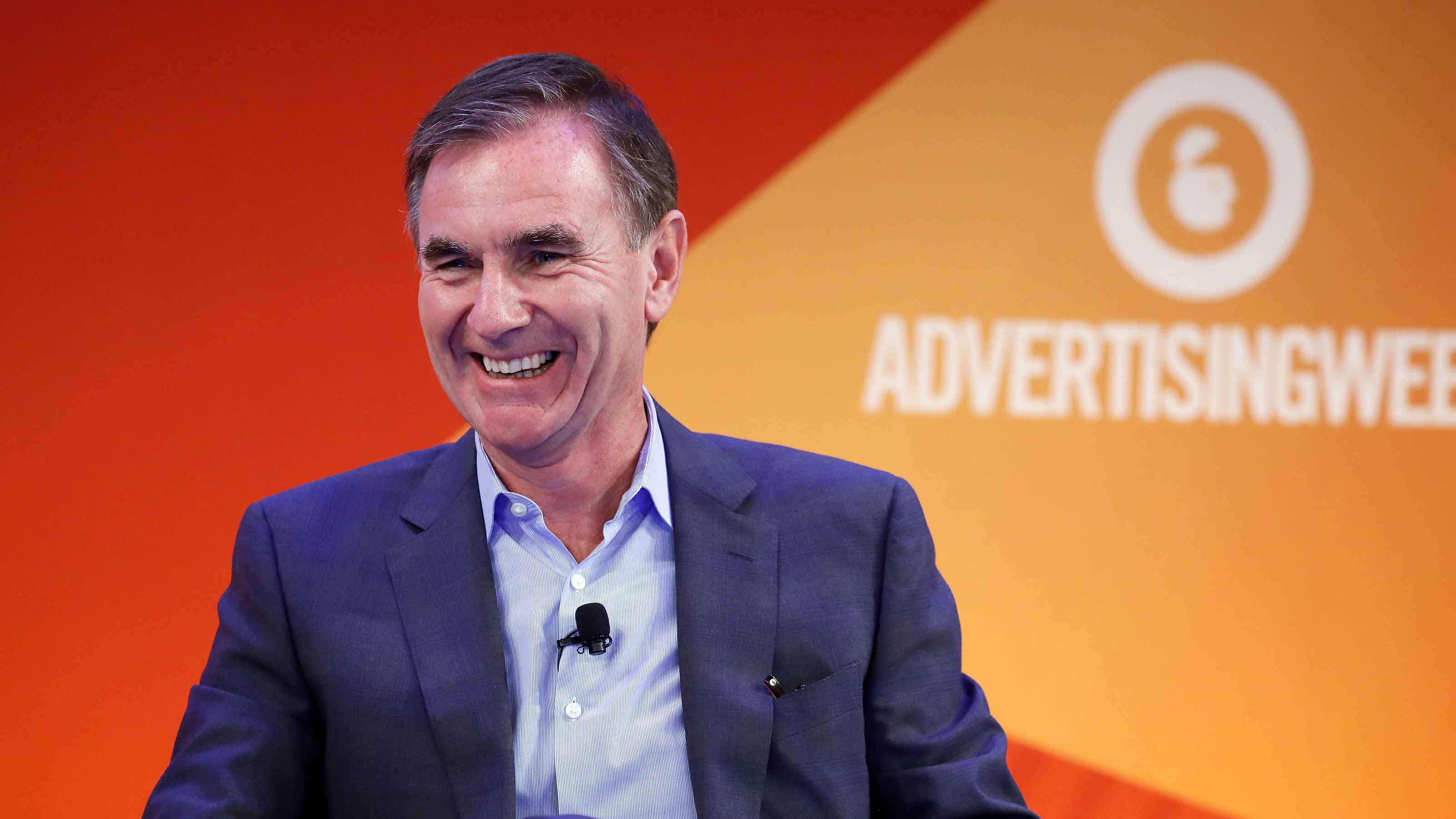
Omnicom Group
- Market value: $17.8 billion
- Free cash flow (TTM): $2.2 billion
- Free cash flow yield: 11.1%
Rumors of the death of Omnicom Group (OMC, $82.89) are greatly exaggerated.
Its stock was once on the ropes, but the world's second-largest ad agency has bounced back nicely in 2021. With OMC up nearly 33% for the year to date and 60% over the past 12 months, there's a spring in its step these days because of the technology investments it is making to stay ahead of the competition.
Omnicom realizes digital advertising is permanently changing due to privacy concerns. The cookie will once more become a food product rather than a tracking device. The company is focused on providing a holistic approach to its clients' needs.
"Our data neutral approach, which results in the most diverse compilation of data sets, continues to be rooted in a robust data privacy compliance methodology," says Omnicom CEO John Wren.
"We have direct connections to the first-party data of many of our clients, because we are open source and data neutral ... at the same time, we orchestrate data sets from about 100 privacy compliance sources to provide a comprehensive view of the consumer across devices."
Although it had a 1.8% decline in organic revenues in the first quarter of 2021, it was a marked improvement over the 9.6% contraction in Q4 2020. At the same time, its operating profit rose 10.8% from the year prior to $465.4 million.
As for COVID-19, Omnicom's business began to be negatively affected in the first quarter of 2020. As the pandemic slows, the company expects to generate positive organic revenue growth in the second quarter and for all of 2021. And if this happens, it's likely OMC's free cash flow will follow suit.
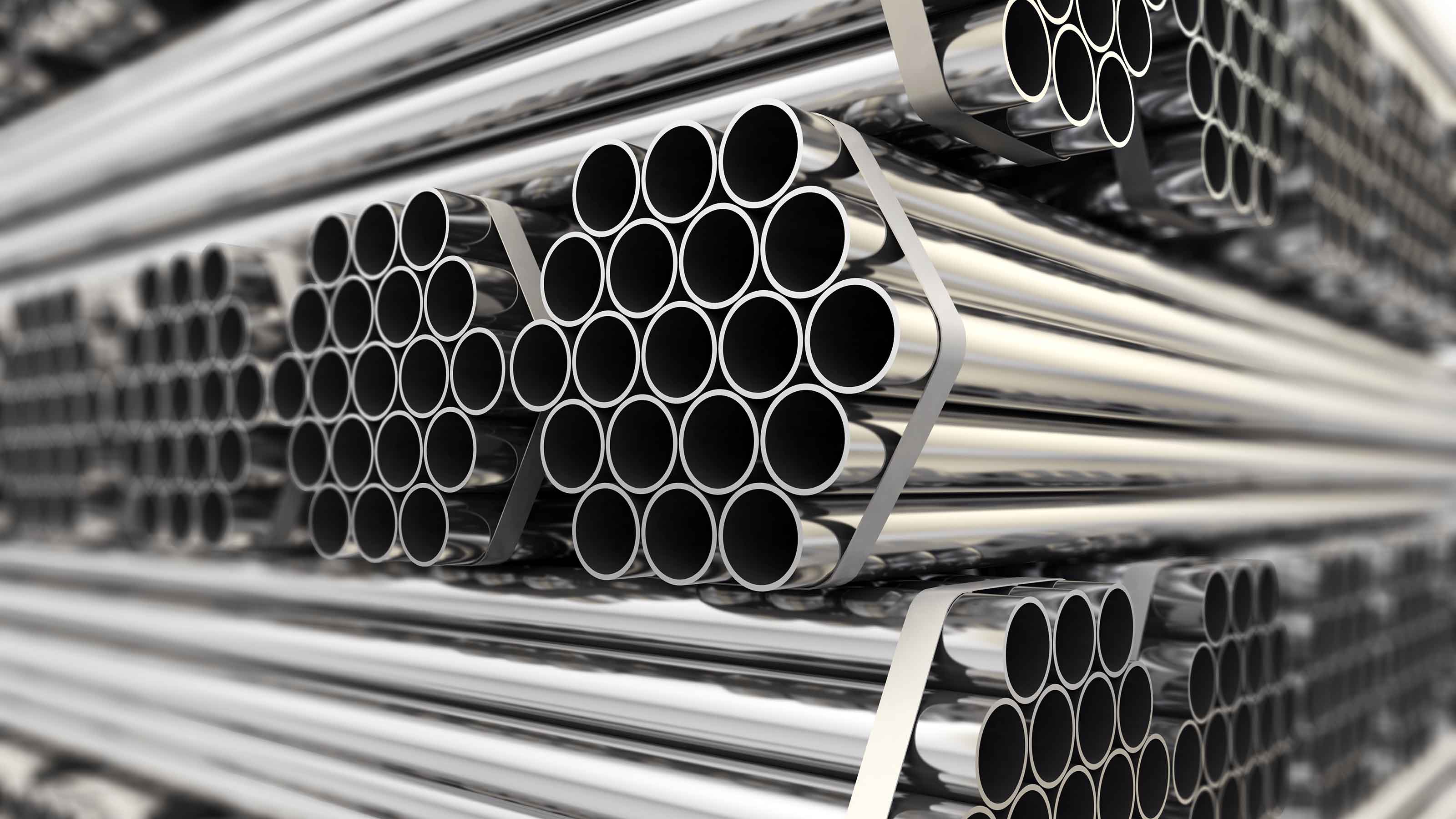
Nucor
- Market value: $30.6 billion
- Free cash flow (TTM): $1.6 billion
- Free cash flow yield: 4.9%
Hang on to your hats because the North Carolina-based producer of steel and steel-related products is expecting 2021 to be an excellent year for its business.
Nucor (NUE, $82.27) reported Q1 2021 results in late April, which included a 25% year-over-year increase in sales to $7.0 billion. On the bottom line, it delivered $942.4 million in net income in the quarter, up from $20.3 million in the same quarter a year earlier and 88% higher than $501.8 million before the pandemic.
The company has invested $4 billion in the past few years, much of it dedicated to a plate mill in Kentucky, and those investments have paid off nicely.
"The first quarter of 2021 was the most profitable quarter in our company's history. We are clearly reaping the rewards from our prior investments and the more strategic approaches we are taking to our key end-use markets," says Nucor CEO Leon Topalian. "It is gratifying to see such strong performance across all of Nucor."
However, it's not done delivering for shareholders. Not only does it expect the second quarter to be a strong one, Topalian believes all of 2021 will be very productive for the steel company that continues to experience strong demand combined with higher prices.
Nucor finished the quarter in excellent financial health with net debt of $2.6 billion, or a reasonable 8.5% of its market cap of $30.6 billion.
That's a recipe for success in any business.
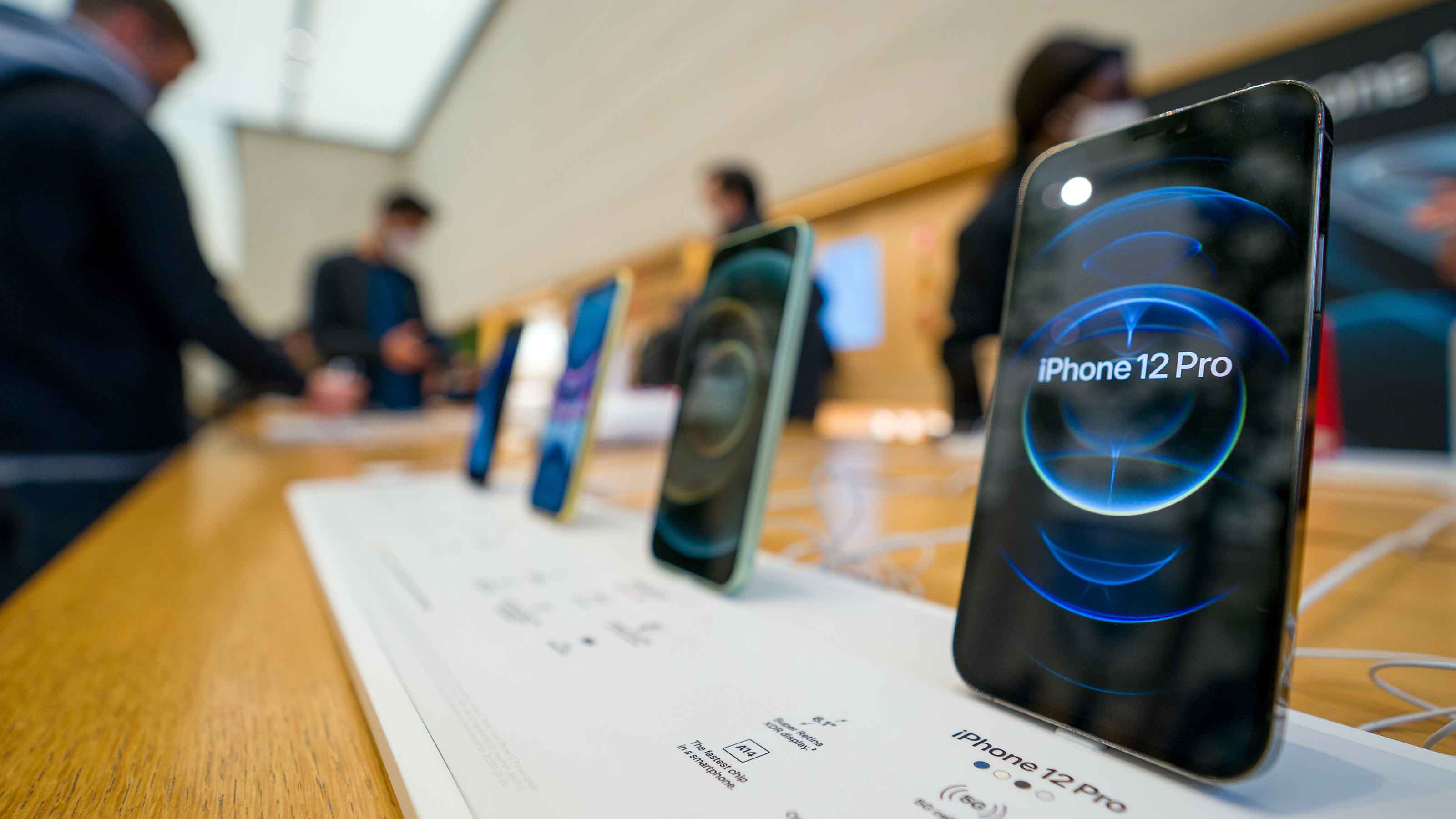
Apple
- Market value: $2.1 trillion
- Free cash flow (TTM): $90.4 billion
- Free cash flow yield: 4.2%
Apple's (AAPL, $125.43) free cash flow yield isn't one of the highest amongst the 10 stocks covered here, but it's undoubtedly the most reliable. It has the largest market cap in the U.S. for a reason. AAPL grows its free cash flow from year to year, and shareholders are rewarded.
In Apple's impressive fiscal second-quarter 2021 earnings release from April 28, Apple's Chief Financial Officer (CFO) Luca Maestri pointed out that the company generated $24 billion in operating cash flow during the quarter, paying out nearly $23 billion of it for dividends and share repurchases.
In Warren Buffett's 2020 letter to Berkshire Hathaway (BRK.B) shareholders, he discussed the importance of share repurchases and dividend payments by Apple, Berkshire's largest equity holding valued at $121 billion and representing approximately 40% of Berkshire's portfolio.
Berkshire paid roughly $36 billion for 5.2% of Apple, buying up its stock at the end of 2016 through the middle of 2018. It then received $775 million in annual dividends and generated $11 billion by selling a small amount of its Apple stock in 2020.
However, because of Apple's share repurchases, Berkshire now owns 5.4% of one of the world's most profitable companies without spending additional funds to increase its stake.
Between the company's unheralded Mac and iPad products delivering healthy growth in the second quarter and its new in-house M1 chip being a big success with customers, Apple's business is running on all cylinders at the moment.
"Both of those things happening at once really supercharged the Mac sales." Apple CEO Tim Cook told Reuters in late April. "The last three quarters on Mac have been the strongest three quarters ever in the history of the Mac."
Thanks to strong sales from the iPhone, Apple's products division managed to outshine its services business in the first three months of 2021, signifying that good things lie ahead for the company and its shareholders.
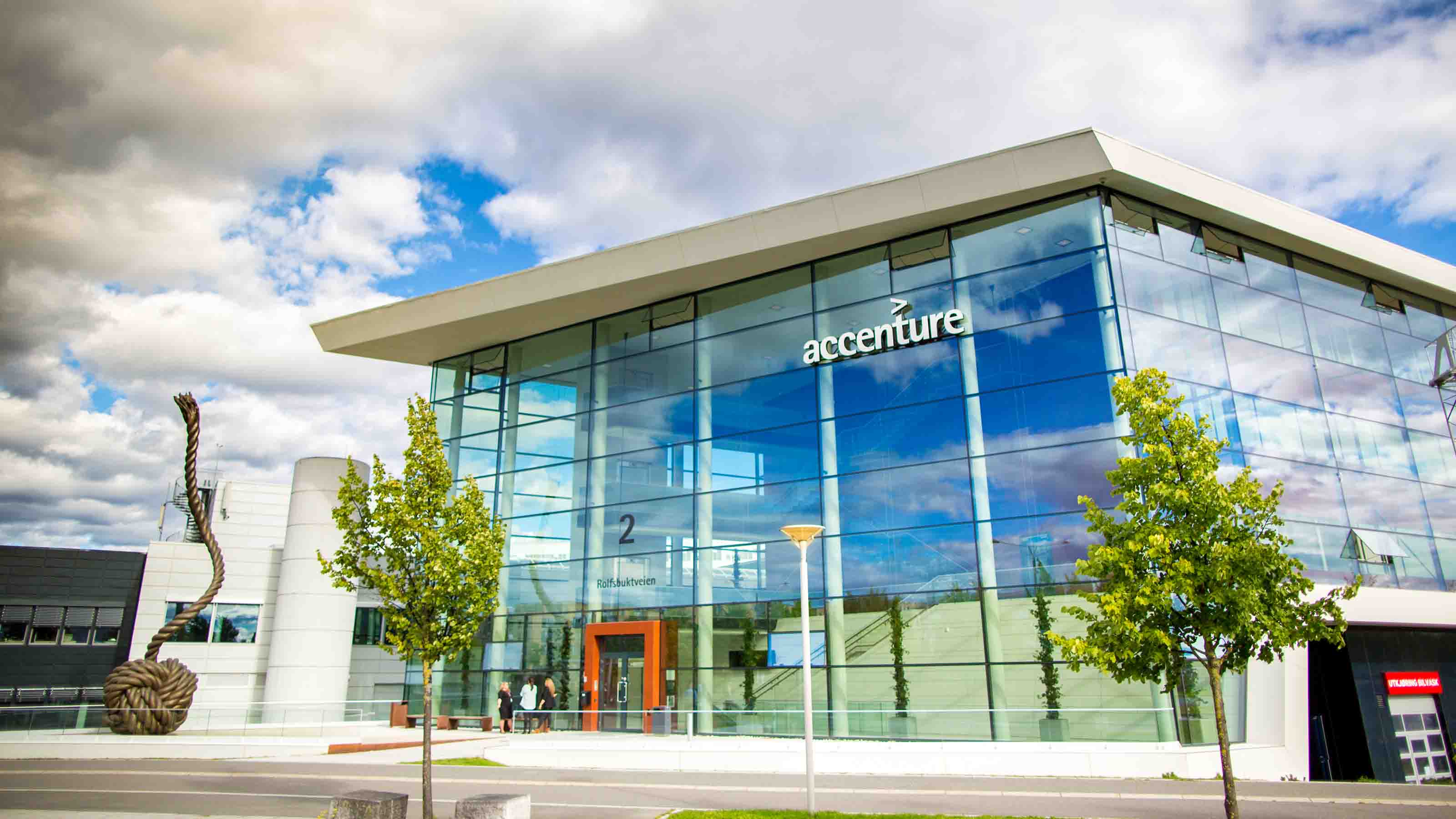
Accenture
- Market value: $180.1 billion
- Free cash flow (TTM): $9.5 billion
- Free cash flow yield: 5.4%
Accenture (ACN, $283.38) is one of those companies you never know what to call it.
Is it a tech consultant? Is it about business process management? It does so many things on a global basis that it's hard to pigeonhole the company. That's a good thing.
The company's fiscal second quarter was very successful, with sales higher in all three of its geographic markets: North America, up 7% to $5.6 billion; Europe was 3% higher to $4.0 billion, and its growth markets experienced a 6% increase to $2.4 billion.
As a result, ACN's adjusted earnings increased 10% over last year to $2.03 per share. The profit was converted into $2.4 billion in free cash flow, and Accenture returned almost $1.8 billion to stockholders via dividends and share repurchases.
An important metric for consulting companies such as Accenture is new bookings. It had $16 billion in new bookings in its second quarter, a quarterly record, with 18 clients each generating bookings of more than $100 million.
The company expects sales to grow by 7.5% in 2021 (the midpoint of ACN's guidance) with adjusted earnings of at least $8.32 per share. Free cash flow is expected to be at least $7 billion, with $5.8 billion returned to shareholders in dividends and share repurchases.
Across the board, Accenture's results were so strong that it gave a one-time bonus equal to a week's pay to all employees below the title of managing director. That's one of the perks of generating strong free cash flow.
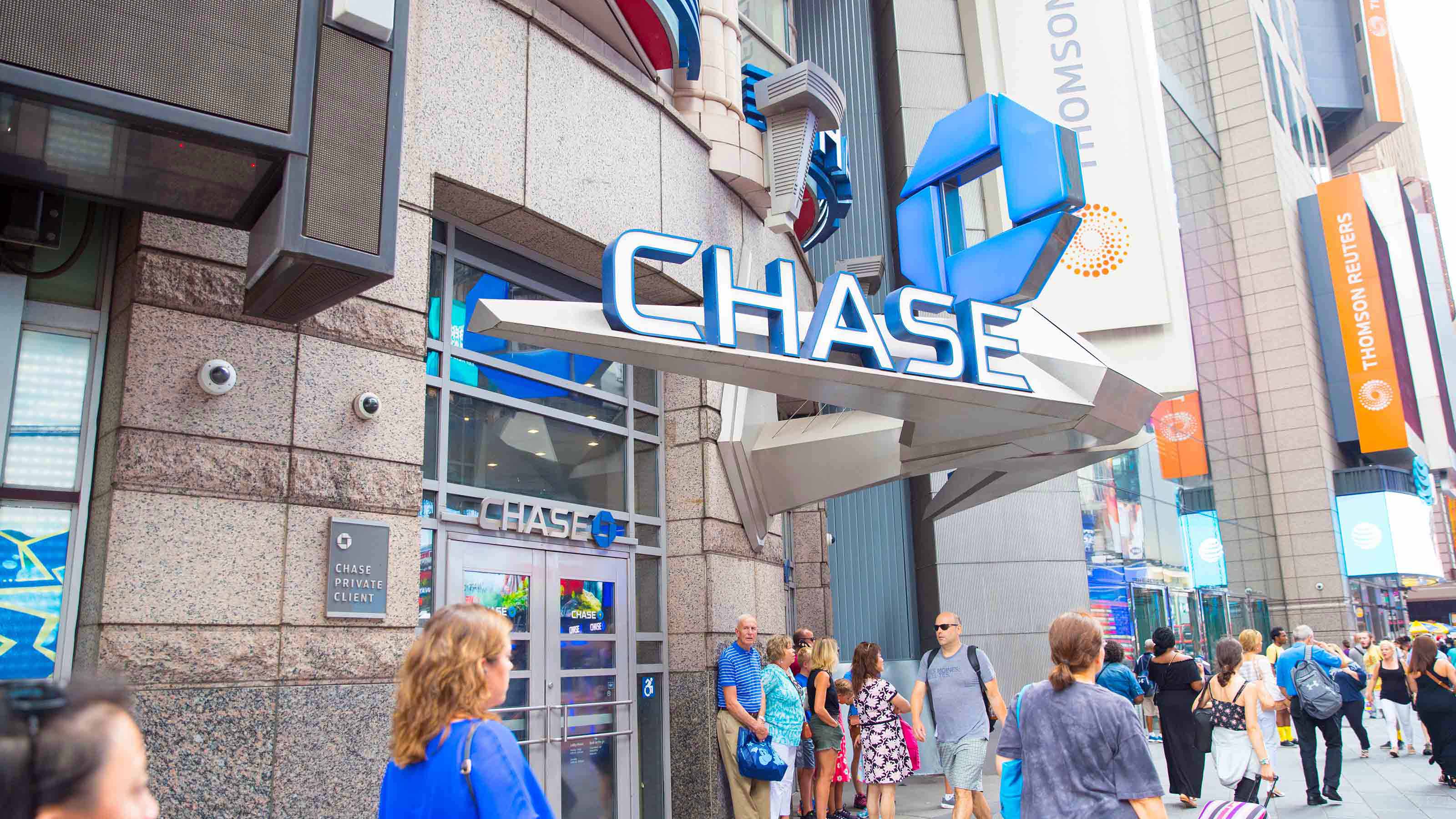
JPMorgan Chase
- Market value: $492.4 billion
- Free cash flow (TTM): N/A
- Free cash flow yield: N/A
According to JPMorgan Chase (JPM, $162.66) CFO Jennifer Piepszak, consumers have saved 30% of all three of their stimulus checks over the past year, dumping some of those savings into debt repayment. As a result, the bank's loans dropped by 4% in the first quarter of 2021 to $1 trillion, while deposits were up 24% year-over-year to $2.3 trillion.
"What happened is, the consumer has so much money, they're paying down their credit card loans, which is good," CEO Jamie Dimon said in mid-April. "Their balance sheet is in excellent, outstanding shape – coiled, ready to go and they're starting to spend money. Consumers have $2 trillion in more cash in their checking accounts than they had before Covid."
Dimon also said that companies have approximately $2 trillion in excess cash on their balance sheets borrowed to survive the pandemic. That cash will also be pushed into the economy over the remainder of 2021.
Unlike non-financial companies, evaluating a bank's free cash flow is a losing proposition. For this reason, investors sometimes use industry-specific metrics such as return on tangible common shareholders' equity (ROTCE), tangible book value per share (TBVPS) and net interest margin (NIM).
One specific metric that JPMorgan Chase uses is the adjusted overhead ratio. It measures the bank's adjusted expenses as a percentage of its adjusted managed net revenue, and works much like an efficiency ratio, which is used to determine how well a financial institution uses its assets to generate revenue.
In the first quarter, JPM's adjusted managed net revenue was 56%, 100 basis points less than in the same quarter the year prior, while ROTCE was 29%, significantly higher than in Q4 2020 and Q1 2020.
JPMorgan's revenue in the first three months of the year was $33.1 billion, considerably higher than the $30.5 billion analysts were expecting. On the bottom line, it earned adjusted earnings per share of $4.59, breezing past the consensus estimate by $1.49.
"Overall, this was a great quarter for JPMorgan," Octavio Marenzi, CEO of consultancy firm Opimas, told CNBC. "It is now increasingly clear that the bank over-reserved, and that money is now flowing back into its earnings, concealing some of the weakness in consumer banking."
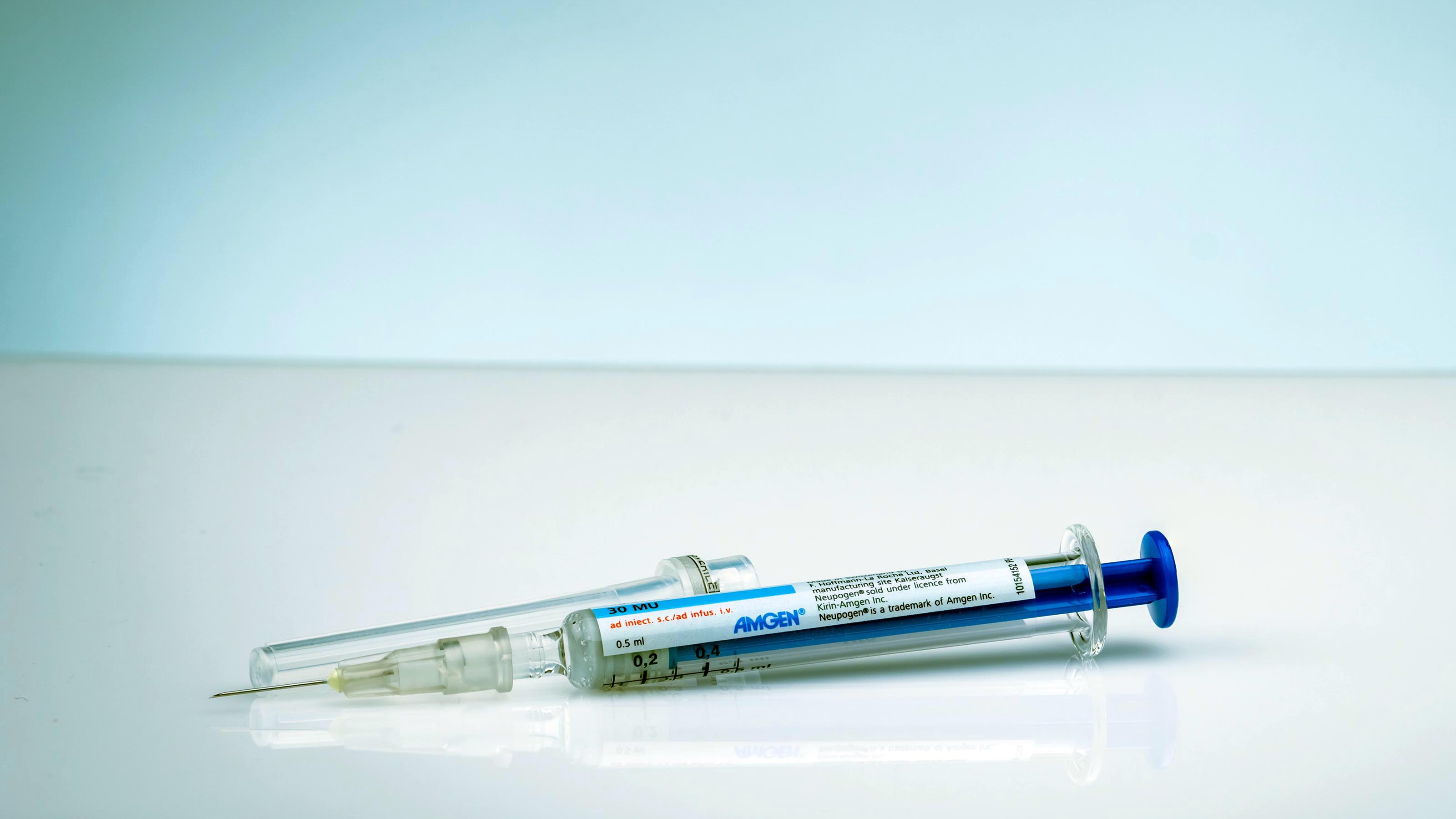
Amgen
- Market value: $144.2 billion
- Free cash flow (TTM): $9.8 billion
- Free cash flow yield: 5.9%
The California drugmaker dropped the ball in its first quarterly report of 2021. Analysts were expecting revenue of $6.3 billion. Amgen (AMGN, $251.01) delivered $5.9 billion. A 1% year-over-year decline in sales of Otezla to $476 million, well below the analyst estimate of $582 million, weighed on the results. Amgen paid $13.4 billion to acquire the oral plaque psoriasis treatment from Celgene in 2019.
However, Cantor Fitzgerald analyst Alethia Young strikes a more optimistic tone about Otezla.
"Launching in the mild-to-moderate psoriasis population may help grow the number of patients on Otezla," Young says. "This is a large population which likely could benefit from a medicine where the risk/benefit profile is quite favorable."
Probably more concerning to the company is the decline in sales of Enbrel, the drug company's leading immunology treatment. Analysts were predicting $1.1 billion in Enbrel sales during the quarter, but they were 20% lower year-over-year at $924 million.
AMGN CEO Robert Bradway did say that the company expects to meet its full-year guidance of $26.2 billion in revenue and $16.50 per share in earnings (both at the midpoint of Amgen's 2021 forecast). He also said the company is impressed by the volume trends of many of its newer products.
With three late-stage products getting breakthrough therapy designations from the U.S. Food and Drug Administration (FDA), the future appears brighter than the quarterly results imply.
Regardless of the ups and downs of each quarter, Amgen's free cash flow generation remains very healthy. This is a buy-on-weakness kind of stock.
Profit and prosper with the best of Kiplinger's advice on investing, taxes, retirement, personal finance and much more. Delivered daily. Enter your email in the box and click Sign Me Up.

Will has written professionally for investment and finance publications in both the U.S. and Canada since 2004. A native of Toronto, Canada, his sole objective is to help people become better and more informed investors. Fascinated by how companies make money, he's a keen student of business history. Married and now living in Halifax, Nova Scotia, he's also got an interest in equity and debt crowdfunding.
-
 Look Out for These Gold Bar Scams as Prices Surge
Look Out for These Gold Bar Scams as Prices SurgeFraudsters impersonating government agents are convincing victims to convert savings into gold — and handing it over in courier scams costing Americans millions.
-
 How to Turn Your 401(k) Into A Real Estate Empire
How to Turn Your 401(k) Into A Real Estate EmpireTapping your 401(k) to purchase investment properties is risky, but it could deliver valuable rental income in your golden years.
-
 My First $1 Million: Retired Nuclear Plant Supervisor, 68
My First $1 Million: Retired Nuclear Plant Supervisor, 68Ever wonder how someone who's made a million dollars or more did it? Kiplinger's My First $1 Million series uncovers the answers.
-
 Dow Adds 1,206 Points to Top 50,000: Stock Market Today
Dow Adds 1,206 Points to Top 50,000: Stock Market TodayThe S&P 500 and Nasdaq also had strong finishes to a volatile week, with beaten-down tech stocks outperforming.
-
 Stocks Sink With Alphabet, Bitcoin: Stock Market Today
Stocks Sink With Alphabet, Bitcoin: Stock Market TodayA dismal round of jobs data did little to lift sentiment on Thursday.
-
 Dow Leads in Mixed Session on Amgen Earnings: Stock Market Today
Dow Leads in Mixed Session on Amgen Earnings: Stock Market TodayThe rest of Wall Street struggled as Advanced Micro Devices earnings caused a chip-stock sell-off.
-
 Nasdaq Slides 1.4% on Big Tech Questions: Stock Market Today
Nasdaq Slides 1.4% on Big Tech Questions: Stock Market TodayPalantir Technologies proves at least one publicly traded company can spend a lot of money on AI and make a lot of money on AI.
-
 Fed Vibes Lift Stocks, Dow Up 515 Points: Stock Market Today
Fed Vibes Lift Stocks, Dow Up 515 Points: Stock Market TodayIncoming economic data, including the January jobs report, has been delayed again by another federal government shutdown.
-
 Stocks Close Down as Gold, Silver Spiral: Stock Market Today
Stocks Close Down as Gold, Silver Spiral: Stock Market TodayA "long-overdue correction" temporarily halted a massive rally in gold and silver, while the Dow took a hit from negative reactions to blue-chip earnings.
-
 Nasdaq Drops 172 Points on MSFT AI Spend: Stock Market Today
Nasdaq Drops 172 Points on MSFT AI Spend: Stock Market TodayMicrosoft, Meta Platforms and a mid-cap energy stock have a lot to say about the state of the AI revolution today.
-
 S&P 500 Tops 7,000, Fed Pauses Rate Cuts: Stock Market Today
S&P 500 Tops 7,000, Fed Pauses Rate Cuts: Stock Market TodayInvestors, traders and speculators will probably have to wait until after Jerome Powell steps down for the next Fed rate cut.
